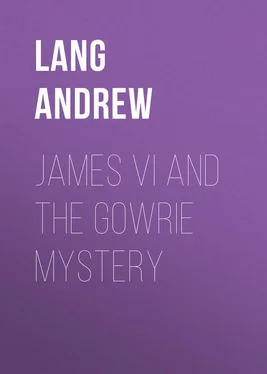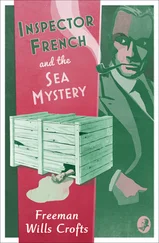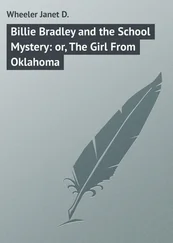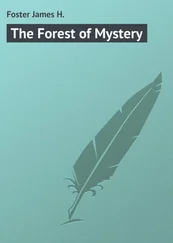Andrew Lang - James VI and the Gowrie Mystery
Здесь есть возможность читать онлайн «Andrew Lang - James VI and the Gowrie Mystery» — ознакомительный отрывок электронной книги совершенно бесплатно, а после прочтения отрывка купить полную версию. В некоторых случаях можно слушать аудио, скачать через торрент в формате fb2 и присутствует краткое содержание. Жанр: foreign_antique, foreign_prose, на английском языке. Описание произведения, (предисловие) а так же отзывы посетителей доступны на портале библиотеки ЛибКат.
- Название:James VI and the Gowrie Mystery
- Автор:
- Жанр:
- Год:неизвестен
- ISBN:нет данных
- Рейтинг книги:5 / 5. Голосов: 1
-
Избранное:Добавить в избранное
- Отзывы:
-
Ваша оценка:
- 100
- 1
- 2
- 3
- 4
- 5
James VI and the Gowrie Mystery: краткое содержание, описание и аннотация
Предлагаем к чтению аннотацию, описание, краткое содержание или предисловие (зависит от того, что написал сам автор книги «James VI and the Gowrie Mystery»). Если вы не нашли необходимую информацию о книге — напишите в комментариях, мы постараемся отыскать её.
James VI and the Gowrie Mystery — читать онлайн ознакомительный отрывок
Ниже представлен текст книги, разбитый по страницам. Система сохранения места последней прочитанной страницы, позволяет с удобством читать онлайн бесплатно книгу «James VI and the Gowrie Mystery», без необходимости каждый раз заново искать на чём Вы остановились. Поставьте закладку, и сможете в любой момент перейти на страницу, на которой закончили чтение.
Интервал:
Закладка:
The author is bound, in honour, to observe that this glaring difficulty about the horse did not occur to him till he had written the first draft of this historical treatise, after reading so many others on the subject. And yet the eagle glance of Mr. Sherlock Holmes would at once have lighted on his Majesty’s mount. However, neither at the time, nor in the last three centuries (as far as we know), was any one sensible enough to ask ‘How about the King’s horse?’
We return to the question, ‘Where was the King?’
Some time had elapsed since he passed silently from the chamber where he had lunched, through the hall, with the Master, and so upstairs, ‘going quietly a quiet errand,’ Gowrie had explained to the men of the retinue. The gentlemen had then strolled in the garden, till Cranstoun came out to them with the news of the King’s departure. Young John Ramsay, one of James’s gentlemen, had met the Laird of Pittencrieff in the hall, and had asked where his Majesty was. Both had gone upstairs, had examined the fair gallery filled with pictures collected by the late Earl, and had remained ‘a certain space’ admiring it. They thence went into the front yard, the Close, where Cranstoun met them and told them that the King had gone. Instead of joining the gentlemen whom we left loitering and wondering outside the front gate, on the street, Ramsay ran to the stables for his horse, he said, and, as he waited at the stable door (being further from the main entrance than Lennox, Mar, and the rest), he heard James’s voice, ‘but understood not what he spake.’ 9 9 The evidence of these witnesses is in Pitcairn, ii. 171–191.
The others, on the street, just outside the gate, being nearer the house than Ramsay, suddenly heard the King’s voice, and even his words. Lennox said to Mar, ‘The King calls, be he where he will.’ They all glanced up at the house, and saw, says Lennox, ‘his Majesty looking out at the window, hatless, his face red, and a hand gripping his face and mouth.’ The King called: ‘I am murdered. Treason! My Lord of Mar, help, help!’ Mar corroborated: Inchaffray saw the King vanish from the window, ‘and in his judgment, his Majesty was pulled, perforce, in at the same window.’ Bailie Ray of Perth saw the window pushed up, saw the King’s face appear, and heard his cries. Murray of Arbany, who had come to Perth from another quarter, heard the King. Murray seems to have been holding the King’s falcon on his wrist, in hall; he had later handed the bird to young Ramsay.
On beholding this vision of the King, hatless, red-faced, vociferous, and suddenly vanishing, most of his lords and gentlemen, and Murray of Arbany, rushed through the gate, through the Close, into the main door of the house, up the broad staircase, through the long fair gallery, and there they were stopped by a locked door . They could not reach the King! Finding a ladder, they used it as a battering-ram, but it broke in their hands. They sent for hammers, and during some half an hour they thundered at the door, breaking a hole in a panel, but unable to gain admission.
Now these facts, as to the locked door, and the inability of most of the suite to reach the King, are denied by no author. They make it certain that, if James had contrived a plot against the two Ruthvens, he had not taken his two nobles, Mar and Lennox, and these other gentlemen, and Murray of Arbany, into the scheme. He had not even arranged that another of his retinue should bring them from their futile hammer-work, to his assistance, by another way.
For there was another way. Young Ramsay was not with Lennox and the rest, when they saw and heard the flushed and excited King cry out of the window. Ramsay, he says, was further off than the rest; was at the stable door: he heard and recognised James’s voice, but saw nothing of him, and distinguished no words. He ran into the front yard, through the outer gate. Lennox and the rest had already vanished within the house. Ramsay noticed the narrow door in the wall of the house, giving on the quadrangle, and nearer him than the main door of entrance, to reach which he must cross the quadrangle diagonally. He rushed into the narrow doorway, ran up a dark corkscrew staircase, found a door at the top, heard a struggling and din of men’s feet within, ‘dang open’ the door, caught a glimpse of a man behind the King’s back , and saw James and the Master ‘wrestling together in each other’s arms.’
James had the Master’s head under his arm, the Master, ‘almost upon his knees,’ had his hand on the King’s face and mouth. ‘Strike him low,’ cried the King, ‘because he wears a secret mail doublet’ – such as men were wont to wear on a doubtful though apparently peaceful occasion, like a Warden’s Day on the Border. Ramsay threw down the King’s falcon, which he had taken from Murray and bore on his wrist, drew his dagger or couteau de chasse , and struck the Master on the face and neck. The King set his foot on the falcon’s leash, and so held it. Ramsay might have spared and seized the Master, instead of wounding him; James later admitted that , but ‘Man,’ he said, ‘I had neither God nor the Devil before me, but my own defence.’ Remember that hammers were thundering on a door hard by, and that neither James nor Ramsay knew who knocked so loud – enemies or friends.
The King then, says Ramsay, pushed the wounded Master down the steep narrow staircase up which the young man had run. The man of whom Ramsay had caught a glimpse, standing behind the King, had vanished like a wraith. Ramsay went to a window, looked out, and, seeing Sir Thomas Erskine, cried, ‘Come up to the top of the staircase.’
Where was Erskine, and what was he doing? He had not followed Lennox and Mar in their rush back into the house. On hearing James’s cries from the window, he and his brother had tried to seize Gowrie, who had been with the party of Lennox and Mar. If James was in peril, within Gowrie’s house, they argued, naturally, that Gowrie was responsible. Not drawing sword or dagger – daggers, indeed, they had none – the two Erskine brothers rushed on Gowrie, who was crying ‘What is the matter? I know nothing!’ They bore him, or nearly bore him, to the ground, but his retainers separated the stragglers, and one, a Ruthven, knocked Sir Thomas down with his fist. The knight arose, and ran into the front court, where Dr. Herries asked him ‘what the matter meant.’ At this moment Erskine heard Ramsay cry ‘Come up here,’ from the top of the narrow dark staircase, he says, not from the window; Ramsay may have called from both. Erskine, who was accompanied by the lame Dr. Herries, and by a menial of his brother’s named Wilson, found the bleeding Master near the foot of the stair, and shouted ‘This is the traitor, strike him.’ The stricken lad fell, saying, ‘Alas, I had not the wyte of it,’ and the three entered the chamber where now were only the King and Ramsay. Words, not very intelligible as reported by Erskine (we consider them later), passed between him and the King. Though Erskine does not say so, they shut James up in the turret opening into the chamber where they were, and instantly Cranstoun, the Earl’s equerry, entered with a drawn sword, followed by Gowrie, with ‘two swords,’ while some other persons followed Gowrie.
Where had Gowrie been since the two Erskines tried to seize him in the street, and were separated from him by a throng of his retainers? Why was Gowrie, whose honour was interested in the King’s safety, later in reaching the scene than Erskine, the limping Dr. Herries, and the serving man, Wilson? The reason appears to have been that, after the two Erskines were separated from Gowrie, Sir Thomas ran straight from the street, through the gateway, into the front court of the house, meeting, in the court, Dr. Herries, who was slow in his movements. But Gowrie, on the other hand, was detained by certain of Tullibardine’s servants, young Tullibardine being present. This, at least, was the story given under examination by Mr. Thomas Cranstoun, Gowrie’s master stabler, while other witnesses mention that Gowrie became involved in a struggle, and went ‘back from’ his house, further up or down the street. Young Tullibardine, present at this fray, was the heir of Murray of Tullibardine, and ancestor, in the male line, of the present Duke of Atholl. He later married a niece of the Earl of Gowrie. His father being a man of forty in 1600, young Tullibardine must have been very young indeed. The Murrays were in Perth on the occasion of the marriage of one of their clan, an innkeeper.
Читать дальшеИнтервал:
Закладка:
Похожие книги на «James VI and the Gowrie Mystery»
Представляем Вашему вниманию похожие книги на «James VI and the Gowrie Mystery» списком для выбора. Мы отобрали схожую по названию и смыслу литературу в надежде предоставить читателям больше вариантов отыскать новые, интересные, ещё непрочитанные произведения.
Обсуждение, отзывы о книге «James VI and the Gowrie Mystery» и просто собственные мнения читателей. Оставьте ваши комментарии, напишите, что Вы думаете о произведении, его смысле или главных героях. Укажите что конкретно понравилось, а что нет, и почему Вы так считаете.
